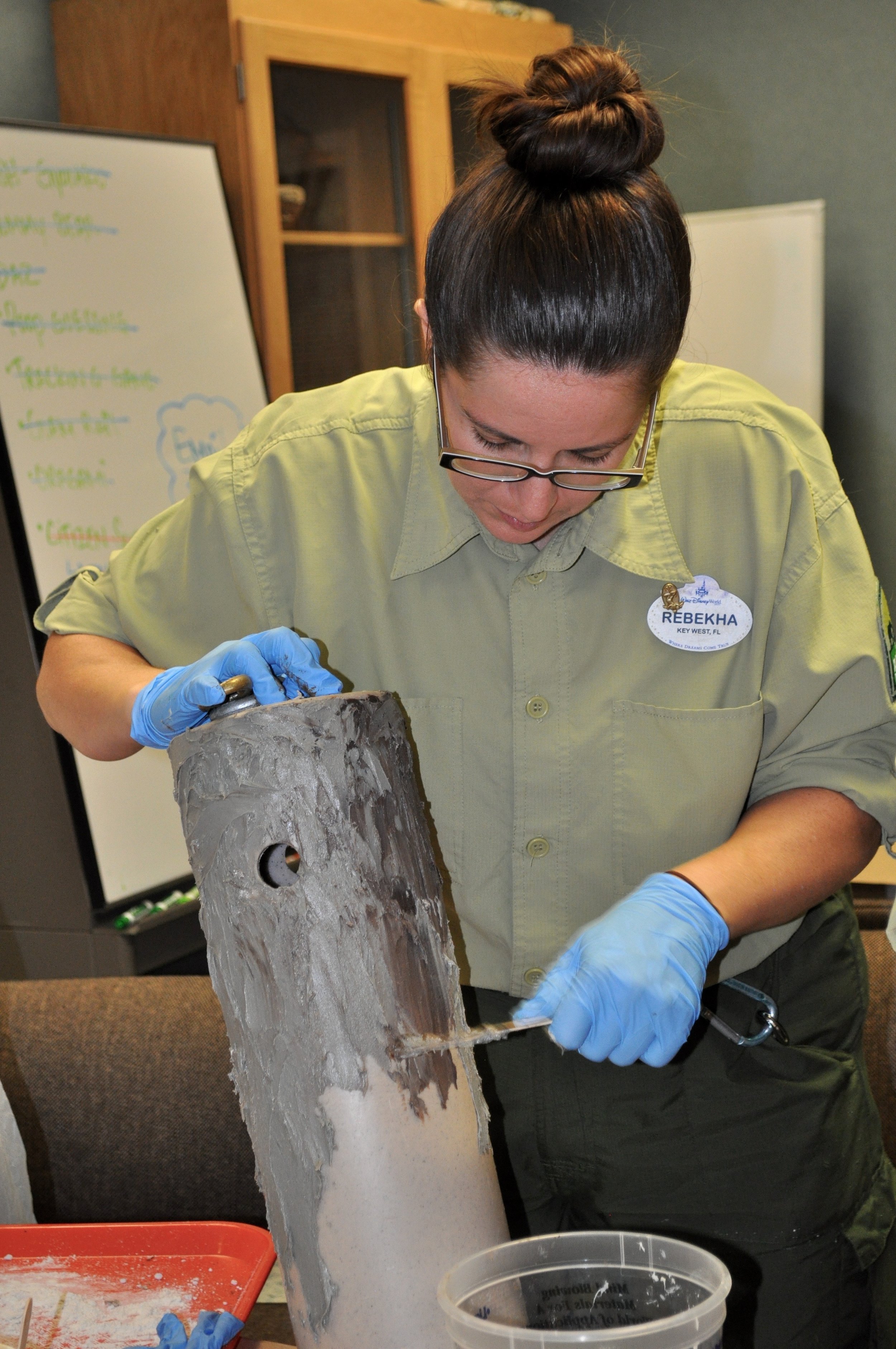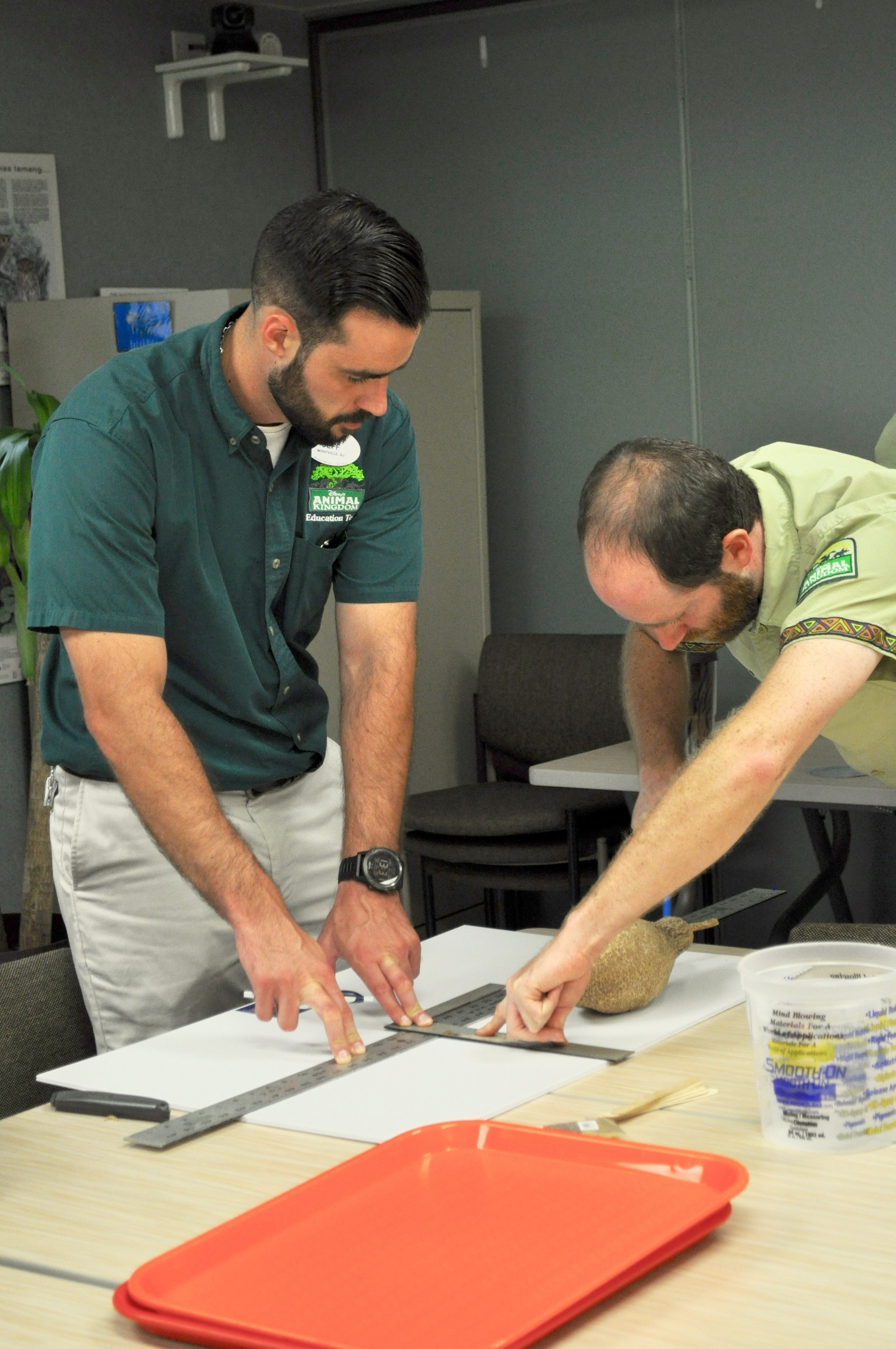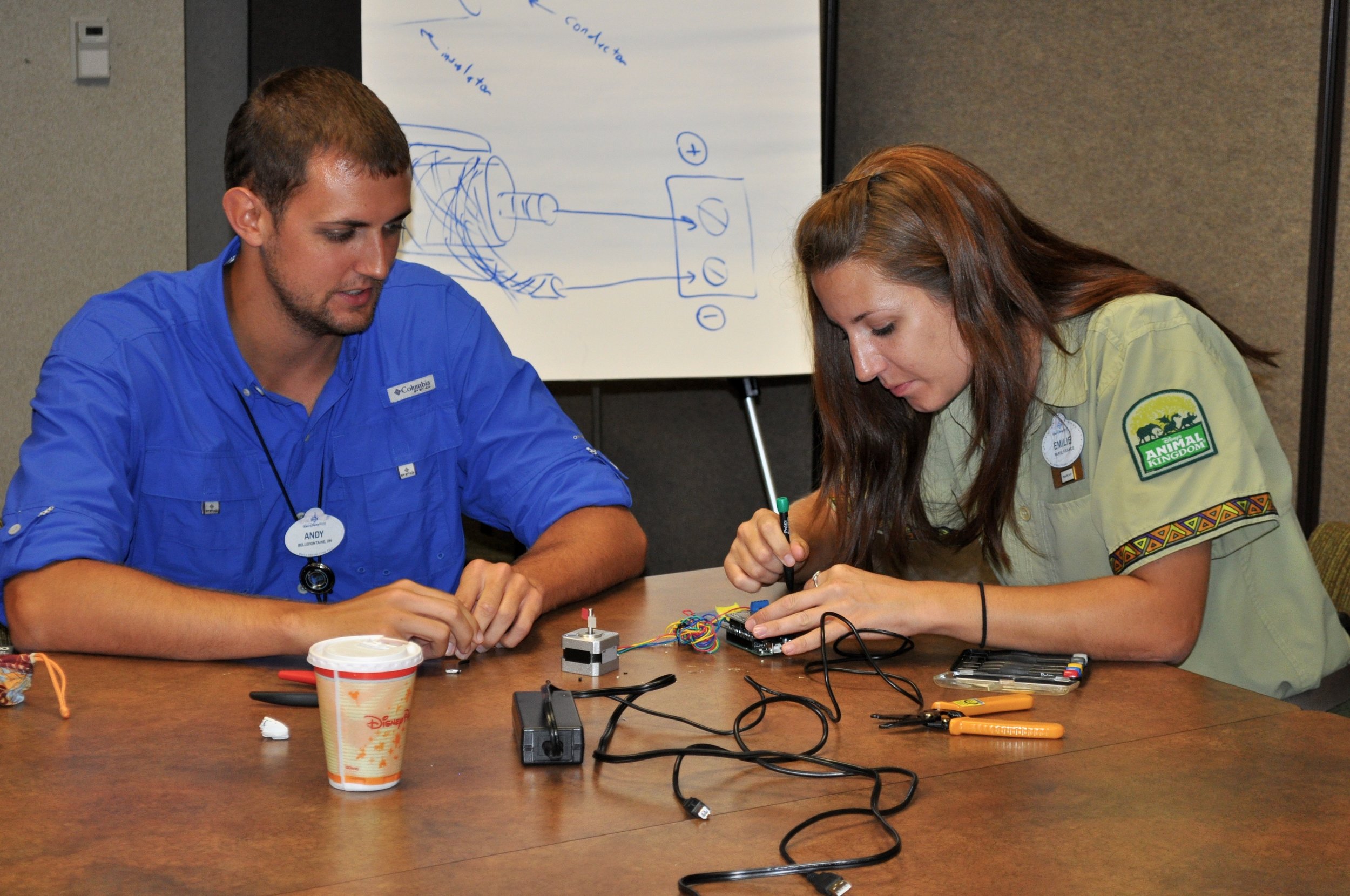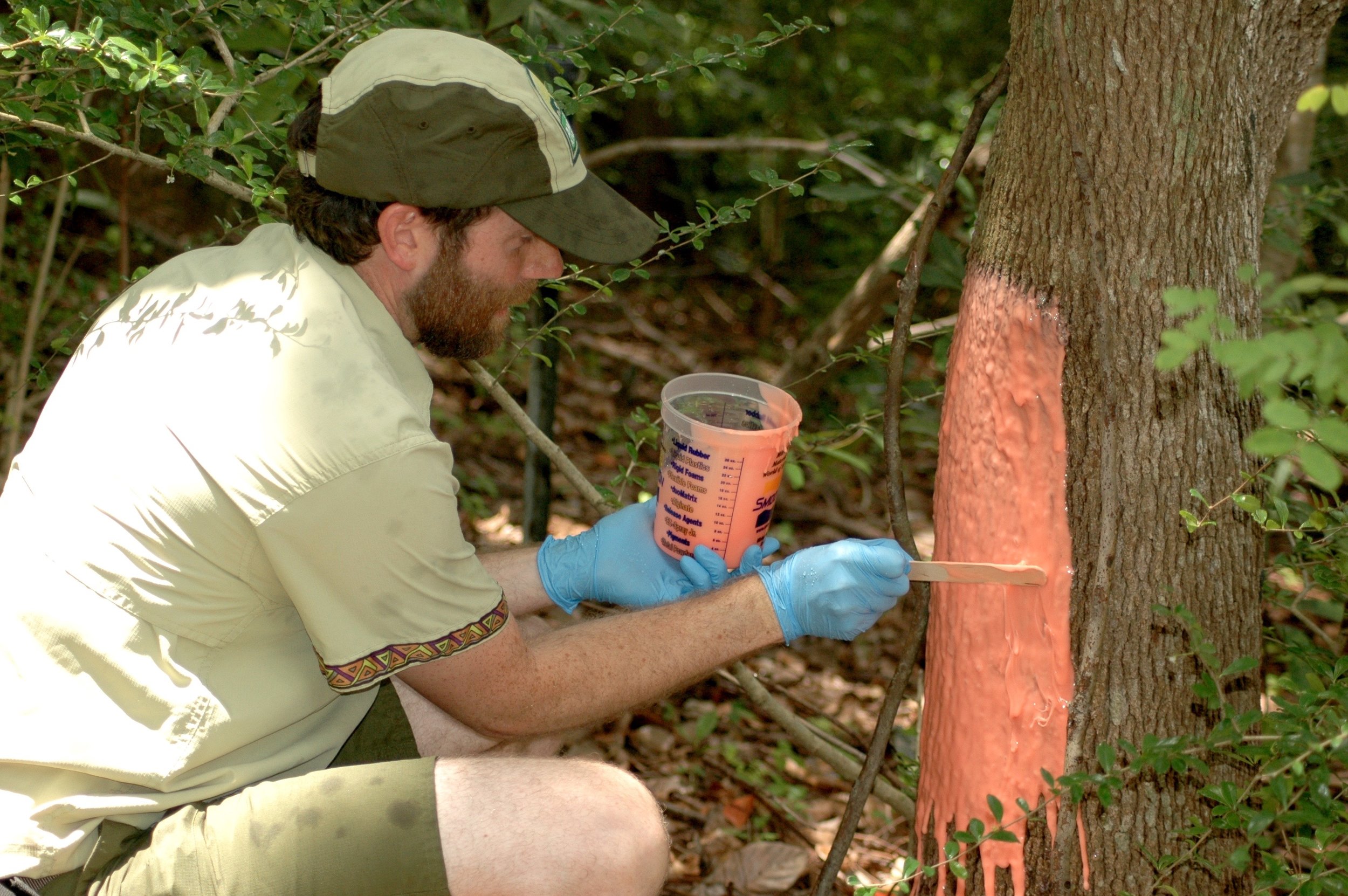Team Development
Development of our staff members is critical to sustainability and growth of our animal enrichment programs. A variety of opportunities are provided to our staff to maintain a progressive enrichment program. Two courses are required for all animal care staff, Introduction to the Behavior Management Program and Enhancing Behavior in Animal Environments.
Introduction to the Behavior Management Program is an introductory course providing new staff with an overview of the Behavioral Husbandry program which includes mission, vision, philosophy, commitments, roles in the program, S.P.I.D.E.R. framework, process expectations, and brief overview of enrichment and training.
Enhancing Behavior in Animal Environments is designed to take a closer look at the science of behavior and its applications in enrichment. This course will highlight specific concepts that build the foundation for a deeper understanding of environmental enrichment including how to use natural and individual history of animals for enrichment development, using risk assessment to identify safety concerns, applying behavior-based goal setting to prioritized behaviors, creating well-written enrichment plans, utilizing documentation and evaluation to determine effectiveness then adjusting enrichment, and following enrichment design principles to blend enrichment into spaces.
Workshops are developed and offered to staff or to individual teams when requested. Workshop topics have included hands-on building of enrichment, blending enrichment into the habitats and enrichment brainstorming sessions.
Enrichment Development Group
The Enrichment Development Group was formed to offer staff an opportunity to learn a variety of specific skills to create and develop progressive, innovative enrichment initiatives. Often, animal care staff has amazing enrichment ideas but lack the skills, tools or resources to develop these ideas into tangible initiatives. For example, we may want to build an automatic feeder on a timer that dispenses different types of food items but get stuck in the production phase when we can only find products that dispense dry food items. The group of individual members are from a variety of teams and backgrounds. They were interviewed and each brought special skills such as engineering, construction, metal work, electronics and art to the group so that they could learn from one another. Partnerships with other departments allowed the group to gain skills in areas that were otherwise difficult to develop. The group has started teaching their own teams the skillsets that they have learned and applying techniques in the animal care areas.




